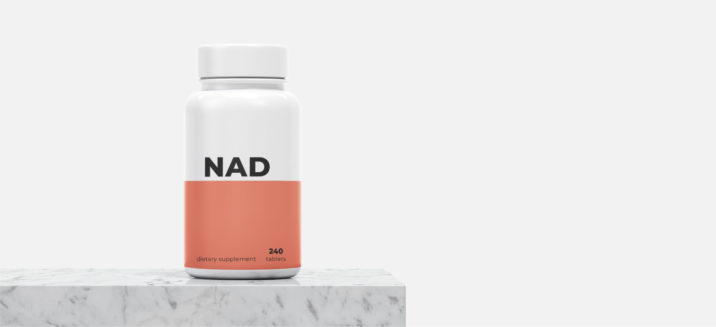This Dr. Axe content is medically reviewed or fact checked to ensure factually accurate information.
With strict editorial sourcing guidelines, we only link to academic research institutions, reputable media sites and, when research is available, medically peer-reviewed studies. Note that the numbers in parentheses (1, 2, etc.) are clickable links to these studies.
The information in our articles is NOT intended to replace a one-on-one relationship with a qualified health care professional and is not intended as medical advice.
This article is based on scientific evidence, written by experts and fact checked by our trained editorial staff. Note that the numbers in parentheses (1, 2, etc.) are clickable links to medically peer-reviewed studies.
Our team includes licensed nutritionists and dietitians, certified health education specialists, as well as certified strength and conditioning specialists, personal trainers and corrective exercise specialists. Our team aims to be not only thorough with its research, but also objective and unbiased.
The information in our articles is NOT intended to replace a one-on-one relationship with a qualified health care professional and is not intended as medical advice.
NAD Supplement Benefits & Ways to Increase Levels Naturally
August 5, 2023

If you’re interested in anti-aging supplements that claim to help slow the onset of disease, then look no further than those that boost levels of the coenzyme called NAD.
What are NAD+ supplements used for? They’re used mostly for helping slow down negative effects of aging, such as chronic disease development, muscle loss and fatigue.
As we get older, our NAD levels naturally decline, which is linked with various health problems. Research suggests that in our 20s, levels in our brain tissue start to drop. By our 40s, levels in our skin are on a decline.
More research in humans is still needed to confirm if, and how exactly, an NAD supplement works to help promote cellular health in older adults. Based on the evidence available right now, which is mostly from mice and yeast studies, this supplement seems to help reverse mitochondrial decay, repair DNA, and supports healing of brain tissue, blood vessels and more.
What Is NAD?
What does NAD mean? It stands for nicotinamide adenine dinucleotide, a type of coenzyme found in humans, animals, yeast and basically all living things. Coenzymes are needed in the body to allow other enzymes to work.
A basic definition of nicotinamide adenine dinucleotide is a cofactor found in all living cells. It’s involved in energy metabolism and a number of bodily processes that allow life to be possible. According to a 2020 study, NAD+ can directly and indirectly influence many key cellular functions, including metabolic pathways, DNA repair, chromatin remodeling, cellular senescence and immune cell function.
NAD+ is made up of two nucleotides, the building blocks for nucleic acids, which form DNA.
Studies have linked the use of an NAD supplement with healthy aging benefits such as:
- Improved energy, mental clarity and alertness, due to its positive effects of cellular processes that support cognitive function
- Improved memory and help treating Alzheimer’s disease and dementia
- Enhanced athletic performance and muscle function
- Better protection against certain cardiovascular problems
- Reduced symptoms associated with chronic fatigue syndrome
- Protection against vision loss and signs of skin aging
- Regulation of circadian rhythms and appetite
What’s the difference between NAD and NAD+?
What is NAD+, and how is its function different than that of NAD’s? The difference all comes down to the charge of these coenzymes.
NAD+ is written with a superscript + sign because of the positive charge on one of its nitrogen atoms. It is the oxidized form of NAD.
It’s considered “an oxidizing agent” because it accepts electrons from other molecules. Although they are different chemically, these terms are mostly used interchangeably when discussing their health benefits.
Another term you may come across is NADH, which stands for nicotinamide adenine dinucleotide (NAD) + hydrogen (H). This is also used interchangeably with NAD+ for the most part.
Both are nicotinamide adenine dinucleotides that function as either hydride donors or hydride acceptors. The difference between these two is that that NADH becomes NAD+ after it donates an electron to another molecule.
NAD Precursors
Precursors are molecules used in chemical reactions inside the body to create other compounds. There are a number of precursors of NAD+ that result in higher levels when you consume enough of them.
Our body synthesizes NAD+ from five different precursors which can be obtained through diet:
- Nicotinamide riboside (NR)
- Nicotinamide mononucleotide (NMN)
- Nicotinic acid (NA)
- Nicotinamide (NAM)
- Tryptophan
Some of the most important precursors for increasing NAD levels are various forms of vitamin B3: nicotinic acid (niacin), NAM and NR. Meanwhile, NR is considered by some experts to be the most efficient precursor to NAD+.
One study found that one single dose of NR could increase NAD+ levels in humans 2.7-fold. Other forms of vitamin B3 that seem to be less effective for boosting levels are nicotinic acid and nicotinamide.
How Your Body Uses NAD
Nicotinamide adenine dinucleotide is described as a “helping molecule” because it binds to other enzymes and causes reactions in the body that have positive outcomes on your health.
Other factors that make this coenzyme so important for healthy aging include its effects on sirtuin “anti-aging” proteins, mitochondrial activity, and involvement in regulating oxidative stress (a cause of many chronic diseases) and circadian rhythms (our “internal clocks”).
According to an article published in Scientific America, “A prominent theory of aging holds that decaying of mitochondria is a key driver of aging.”
As mitochondria lose some of their power, this seems to contribute to diseases and symptoms tied to aging, including heart failure, cognitive decline/neurodegeneration and fatigue.
Mitochondria are specialized structures found in cells. They participate in many cellular processes, including helping to extract the energy that is stored in nutrients and transforming it into a form of energy that can power the body’s cells.
A study in mice found that increased NAD+ levels could restore mitochondrial function. NAD+ has a key role in mitochondrial function because it is the main coenzyme responsible for the delivery of the electrons that are extracted from food to the electron transport chain for ATP production.
It is therefore as important for cellular energy as ATP itself.
NAD+ and Sirtuins
A group of proteins that are linked with anti-aging effects, called sirtuins, rely on NAD+ to function properly. Sirtuins have been found to play a role in regulating cellular and mitochondrial health.
Some animal studies show that they play a role in maintaining the length of telomeres, which is linked to longevity.
In studies conducted using yeast, activation of sirtuin proteins has been shown to help expand life span, although we still don’t know exactly how this carries over to humans.
Another enzyme with potential anti-aging effects is called poly (ADP-Ribose) polymerases (PARPs), which some studies shown NAD+ can also help activate.
Benefits
Molecules that can be taken in supplement form to increase NAD levels in the body are referred to by some as “NAD boosters.”
Studies conducted over the past six decades suggest that the following are some of the many benefits associated with taking an NAD supplement:
1. Can Help Restore Mitochondrial Function
According to a 2021 Molecular Metabolism study, for NAD+ depletion associated with aging-related neurodegenerative disorders, NAD supplements, treatment with NAD+ precursors or sirtuin activators may help restore mitochondrial function.
2. May Help Repair Blood Vessels
NAD supplementation may aid in repair and growth of aged blood vessels. There’s also some evidence it can help manage heart disease risk factors like high blood pressure and high cholesterol.
Essentially, some NAD+ precursors — nicotinamide riboside (NR) and nicotinamide mononucleotide (NMN) — have the potential to be vasoprotective. That means they can act to alleviate or prevent conditions or diseases that affect the blood vessels. One study demonstrated that these precursors presented an effective vasoprotective mechanism to maintain healthy endothelial cells.
3. May Improve Muscle Function
A 2020 study with patients who had a systemic NAD+ deficiency were administered an increasing dose of NAD+-booster niacin (a vitamin B3 form of 750–1,000 mg/day) for 10 months.
As expected, blood NAD+ levels increased in all subjects, up to 8-fold, while muscle NAD+ of patients reached the level of their controls. Muscle strength and mitochondrial biogenesis increased in all subjects. Niacin turns out to be an efficient NAD+ booster for treating mitochondrial myopathy.
4. Potentially Helps Repair Cells and Damaged DNA
Some studies have found evidence that NAD+ precursor supplementation leads to an increase in DNA damage repair. NAD+ is broken down into two component parts, nicotinamide and ADP-ribose, which combine with proteins to repair cells.
A 2022 study noted that NAD+ helped regulate various aspects of DNA integrity, damage repair and gene expression.
5. May Help Improve Cognitive Function
Several studies conducted on mice have found that mice treated with NAD+ precursors experienced improvements in cognitive function, learning and memory. Findings have led researchers to believe that NAD supplement may help protect against cognitive decline/Alzheimer’s disease.
The 2021 Molecular Metabolism study above also found that NAD supplementation can enhance neuronal function, which can improve cognitive function.
6. May Help Prevent Age-Related Weight Gain
A 2012 study showed that when mice fed a high-fat diet were given an NAD supplement, they gained 60 percent less weight than they did on the same diets without the supplement. One reason this may be true is that nicotinamide adenine dinucleotide helps regulate production of stress- and appetite-related hormones, thanks to its effects on circadian rhythms.
Types and Dosage Recommendations
According to a 2022 Frontiers in Nutrition study, healthy volunteers received 250 mg/day of the NAD precursor NMN for 12 weeks and were about to tolerate it safely. NAD+ blood levels were significantly increased.
The precursor nicotinamide riboside (NR), also called niagen, is available in tablet or capsule form. A typical dosage of NR supplements is about 200 to 350 milligrams, taken once or twice daily. In studies, doses of 100, 300 and 1,000 milligrams of NR daily have been shown to have positive effects and produce dose-dependent increases in blood levels of NAD+.
Doctors will sometimes prescribe higher doses of NAD therapy for patients in the form of intramuscular (IM) or intravenous (IV) NAD injections. This type of treatment may be used to manage symptoms of Parkinson’s disease, dementia or depression, for example.
Other Ways to Increase Levels
Humans get NAD+ from their diets, specifically from eating protein-rich foods (foods made up of amino acids). Your diet can provide you with not only amino acids and vitamin B3, but also other precursors of this coenzyme, including tryptophan and nicotinamide mononucleotide (or NMN).
Here’s how to increase NAD levels naturally:
- Consume cow’s milk, yeast and beer, which research shows all contain small amounts of NAD precursors
- Consume high-protein foods
- Consider trying the keto diet to increase ketone levels, which may increase NAD levels, according to studies
- Consider using the herbal supplement yohimbe
- Exercise regularly
- Incorporate intermittent fasting into your routine
- Avoid high alcohol intake
Precautions and Side Effects
NAD supplement options are generally well-tolerated and don’t seem to pose much risk for side effects when used for durations of about 12 to 24 weeks. Certain side effects are still possible, however, and may include nausea, fatigue, headaches, diarrhea, stomach discomfort and indigestion.
Final Thoughts
- What is NAD? It stands for nicotinamide adenine dinucleotide, which is a coenzyme found in cells of all living beings.
- NAD supplement treatments have gained attention recently as potential anti-aging compounds.
- Nicotinamide riboside (NR) seems to be the most important precursor of nicotinamide adenine dinucleotide that helps increase levels. NR is an alternative form of vitamin B3 that can be taken as a supplement.
- Here’s how to increase levels naturally: Consume cow’s milk, yeast and beer (in moderation); eat foods with protein and B vitamins; fast; exercise regularly; avoid high alcohol consumption.












